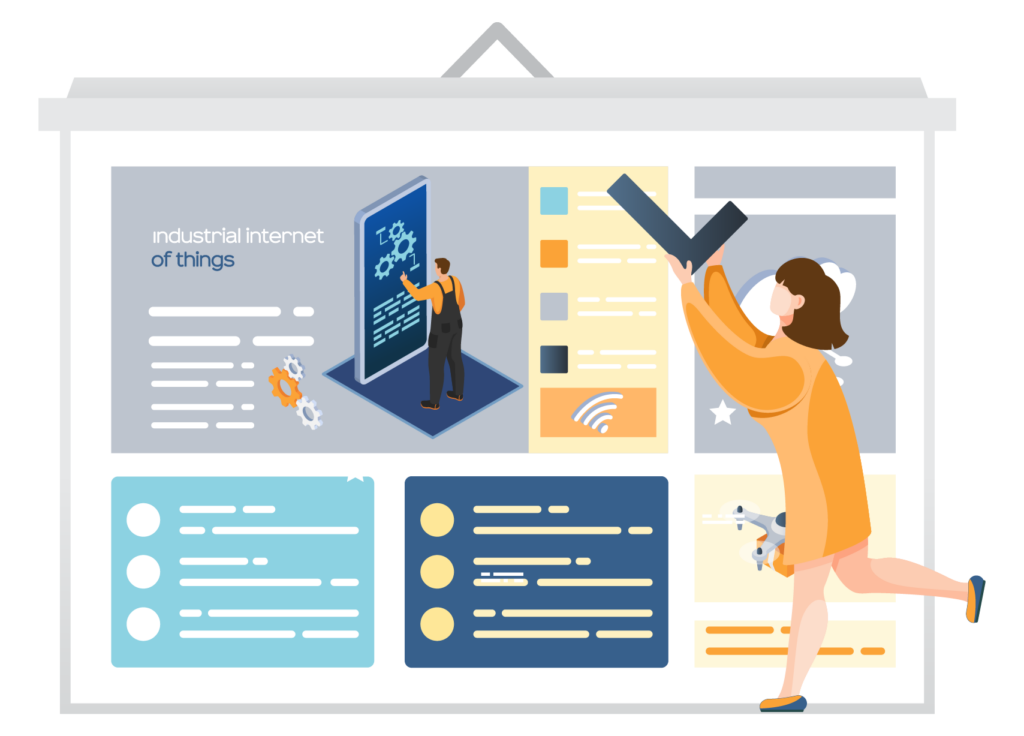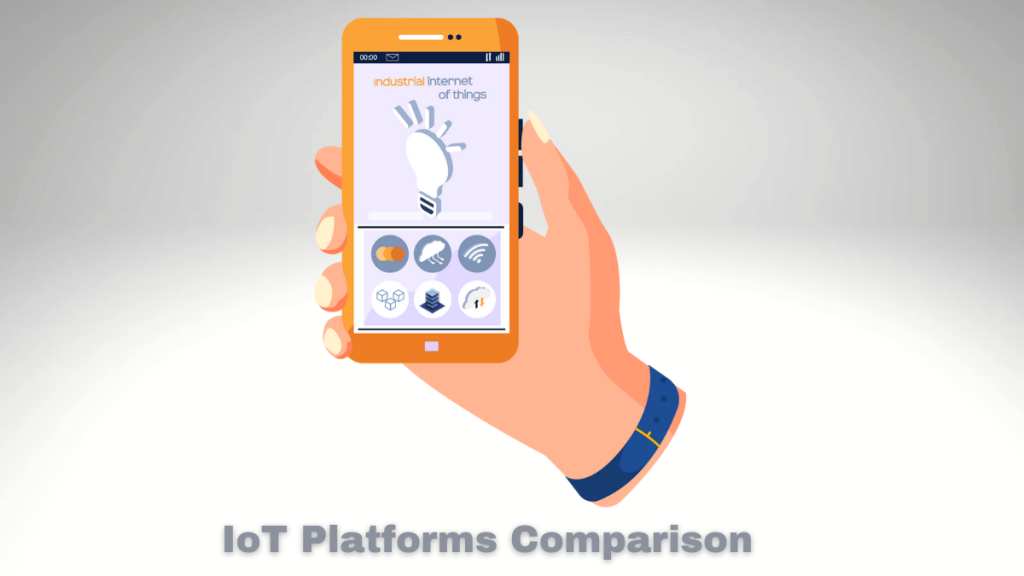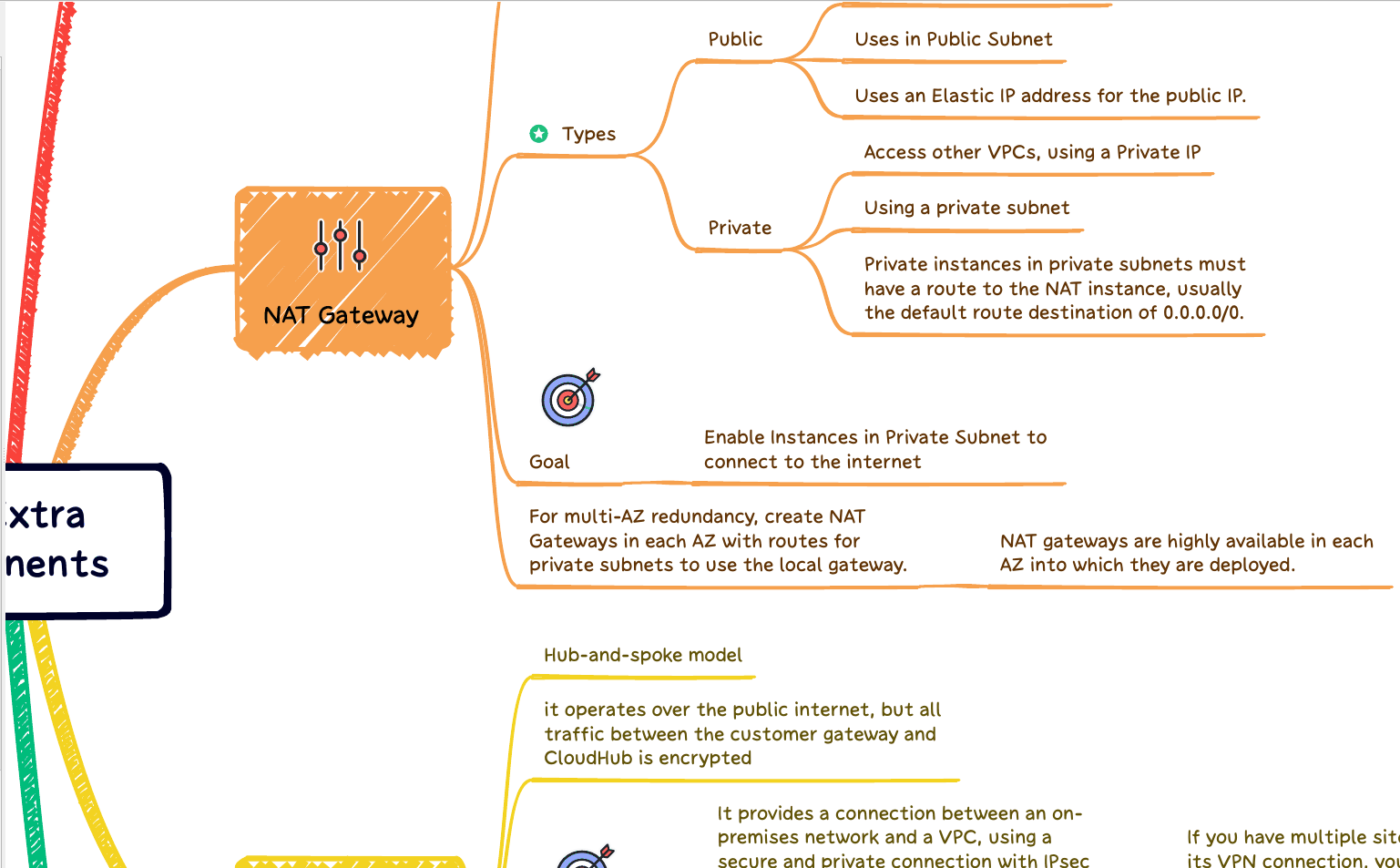Wondering which IoT platform to choose for your next project? Here’s a comprehensive comparison of the top 5 platforms on the market.
With the shift in technology and the rapid growth of the internet of things, you need the best ways of connecting to the web to succeed. Whether you run a company, business, or individual project, an IoT software platform will allow you to enjoy seamless communication with your clients or target customers.

Note, however, that you need to understand how IoT platforms work before you can start enjoying the benefits. And with the internet landscape becoming more competitive every day, you must understand what platforms are relevant for the kind of work you want to do. The market has many platforms, and new ones enter the market every day.
The purpose of this article, therefore, is to help you understand various IoT platforms. In particular, it provides an in-depth comparison used when making a choice. Read on to get insights into these platforms so you make the most out of them.
Dominant IoT Platforms Worth Considering
In this digital age, you need to use internet solutions that help you provide the best customer experience. More precisely, you need to be able to switch between devices and communication channels pretty easily.
Thankfully, with call center omnichannel, you can boost your communication, especially with clients and customers. You can utilize various channels, including email, messages, video chats, and communication apps. To do so, you need to integrate your tools and devices into the best IoT platforms, and here are the most dominant platforms worth considering:
AWS
AWS is, arguably, an all-encompassing IoT in the sense that you can use it for your small and large IoT solution needs. It comes as a unit comprising ten devices. Whether you want a simple solution or what is often called a toaster or a solution that can manage a car or machine-making plant, AWS may be worthwhile.
You can deploy AWS IoT for a wide array of activities. In particular, you can use it for data storage, edge operations, analytics, and device management, among others. With it, you also benefit from other features, such as Amazon’s cloud services, especially the major ones.
Azure
Azure ranks top when it comes to completeness. With it, you have everything necessary for your IoT needs or services. Even in situations where you have to add devices and cases to your project, Azure still does it. You won’t have to add anything else. The Azure IoT platform comes as a package with the following:
- IoT hub for your management needs and deployment
- IoT edge to aid your computing
- IoT central aspect for development
- Time series insights for visualization
With all the above included as a package, you have what you need for your IoT-related activities. It’s all there in one package.
Undoubtedly, Google is a widely used solution because of its ability to power projects, including those that require connection to millions of devices. It might, therefore, be a solution to consider if you want an IoT solution that is beefy enough to power your relatively many devices.
Google also has data tools and maps largely helpful in situations where you have to showcase your devices with their real-time locations. Such a feature is great for projects that involve monitoring and some bit of analytics.
IBM
IBM cloud technologies also work well with IoT data. You can, therefore, use it to get insights relevant to your project or work. Depending on your tools, you can deploy IBM to almost every aspect of your operation or business model.
You may, however, have to combine IBM with other technologies relevant to your business to help you get innovative solutions. That way, you can easily derive insights regarding the collection and sharing of data.
Cisco
You probably know Cisco as a management and development platform. Those are not the only areas that you can use in your business. You can utilize it for your IoT data operations. In particular, you can use it to create connections with both wired and wireless devices and then manipulate data.
Cisco is also useful when you want to do fog computing. It helps you integrate computing with data capture points. That way, you can create effective configurations with your apps or other tools.
Features You Must Check When Comparing IoT Platforms
One way to determine which platforms are the most relevant and possibly the best for your business or organization is to juxtapose their features. That way, you get to understand how each platform works and what it can help you do.
So, when choosing, ensure that you compare the various options by carefully exploring various features. That is the only way to determine a worthwhile option that will help you meet your needs. Check these:
Security
Your IoT Platform’s security is very vital to consider. A good one should not leave any loophole, especially in data exchange protocols and authentication mechanisms. It must be safe for your data and that of your customers.
Analytics
Analytics: gathering and sharing data alone is not enough. A good IoT platform should also be helpful in analytics. More specifically, it should help you get metrics for planning and decisions. You need to analyze situations to compete favorably.
Device management
Here, pay attention to functions relating to devices, appliances, and others, such as wind turbines. A good platform should allow you to add, disable, monitor, and update them when necessary. You may have to assess these first before deciding which platform is worthwhile.
Edge computing
Possibly the best feature you must check when weighing various IoT platforms. Some have the best capabilities in data processing to help make life easier. If you do complex processing in your business or organization, get a platform with such capabilities.
Scalability
every business anticipates growth. So, when assessing various IoT platforms, go for those that give you an option to upscale your activities. Further, ensure that you can connect to devices without unnecessary restrictions.
All these features are very vital. Check them carefully as you explore AWS, Azure, Google, IBM, and Cisco. Even if it means a head-to-head comparison, please, ensure you do not leave out anything in your assessment.
Conclusion
This article has compared IoT platforms to help you choose a suitable one for your business or organization. Regardless of your status, you can always start with a platform with a few devices that scale up your operations over time. That’s why the aspect of scalability is very vital when assessing the various IoT platforms.
Whichever platform you choose, you should remember to get a deeper understanding of how it integrates with your system. If you choose the best, you might edge out the competition and manage your activities effectively.

